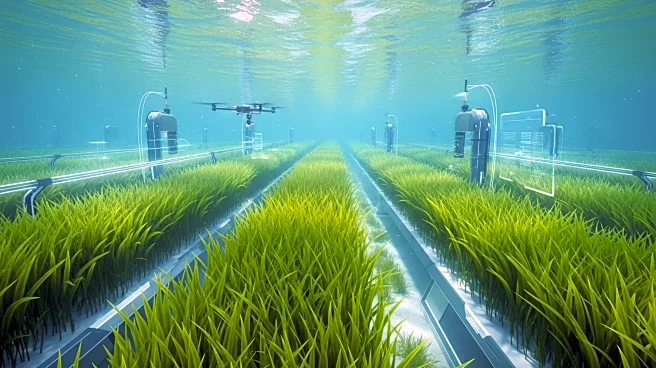What's Happening?
Seaweed aquaculture is rapidly growing as a sector within the aquaculture industry, driven by technological advancements and large-scale farming methods. This growth is supported by automated harvesting and processing techniques, which enhance productivity and efficiency. Seaweed farming offers significant benefits, including carbon sequestration, which contributes to climate change mitigation. The industry is also exploring the development of functional and value-added seaweed varieties for nutraceuticals and pharmaceuticals, as well as its use in bioremediation and ecosystem restoration. The sector's expansion is further supported by research into sustainable farming practices and the potential use of seaweed as animal feed ingredients.
Why It's Important?
The expansion of seaweed aquaculture is important for several reasons. Environmentally, it plays a crucial role in carbon sequestration, helping to mitigate climate change. Economically, it provides opportunities for farmers and coastal communities, potentially leading to job creation and economic development. The industry's focus on sustainable practices and product development for nutraceuticals and pharmaceuticals could lead to new markets and applications, further boosting its economic impact. Additionally, the use of seaweed in bioremediation and ecosystem restoration highlights its potential to address environmental challenges, making it a valuable resource for sustainable development.
What's Next?
As the seaweed aquaculture industry continues to grow, further research and development are expected to enhance its capabilities and applications. This could include the development of new seaweed varieties and products, as well as improvements in farming and processing techniques. The industry may also see increased collaboration with other sectors, such as pharmaceuticals and nutraceuticals, to explore new uses for seaweed. Additionally, regulatory frameworks and policies may evolve to support sustainable practices and ensure the industry's long-term viability. Stakeholders, including researchers, policymakers, and industry leaders, will likely play a key role in shaping the future of seaweed aquaculture.










